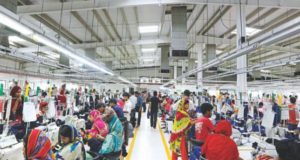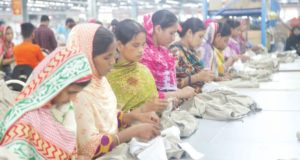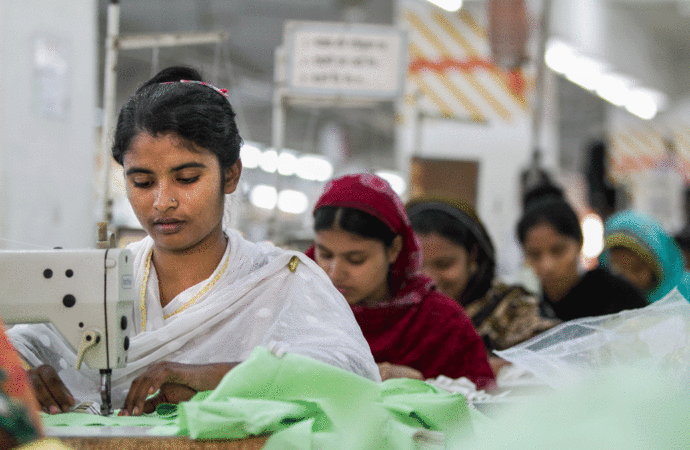Since the last revision of RMG minimum wages, workers’ living expenses have increased by 85%. Non-food consumption of workers increased significantly compared to their expenses on food.
Read More »‘Garment Worker Diaries’ reveal the plight of garment workers
A research of the garment sector in India, Bangladesh and Cambodia, commissioned in the aftermath of the Rana Plaza disaster that led to scores of workers’ deaths, has revealed the poor wage and working conditions prevailing in the sector.
Read More »What negotiators should keep in mind
The government of Bangladesh has recently formed a new wage board for the readymade garment (RMG) industry where 4.4 million workers are currently employed.
Read More »Minimum wage board representatives to submit separate proposals
The minimum wage board for the readymade garment workers in its first meeting on Monday decided that representatives of both factory owners and workers would submit separate proposals of minimum wages to the board before the next meeting to be held on April 25.
Read More »CPD study stresses the need for balanced level of upgradation in RMG Sector
There is an indication that a sizable share of RMG enterprises are likely to be situated at a level where they could either survive or they could become ‘uncompetitive’.
Read More »Policy change required to move from minimum wage to living wage
The present minimum wage in Bangladesh garment industry is below the poverty level, making it very difficult for the workers to bear their living cost
Read More »Bangladesh should follow ILO’s set definition of wages for RMG workers
Although Bangladesh has made remarkable recent strides like building green factories and meeting stringent safety standards, garment workers here are still paid one of the lowest minimum wages in the world.
Read More »New wage board formed to revise minimum wage for garment workers
The government has formed a new wage board for the RMG sector to formulate a new wage structure for apparel workers.
Read More »Study shows 20 cents more per T-shirt could pay living wage for an Indian worker
If we really care about protecting the people who make the things we wear and use, we need to raise wages for workers in supply chains to above the poverty line.
Read More »Three quarters of women garment workers face verbal abuse
Three quarters of women garment workers in Bangladesh stated to have experienced verbal abuse while 20 percent physical abuse, reads a report on the prevalence of gender-based violence in the garment supply chain.
Read More » CPD RMG Study Stitching a better future for Bangladesh
CPD RMG Study Stitching a better future for Bangladesh









